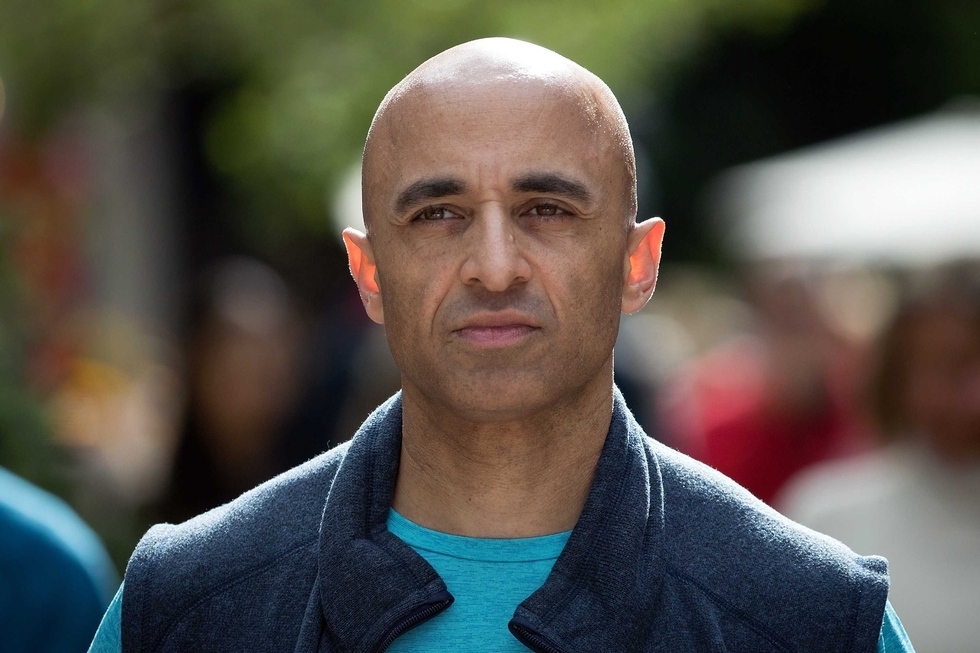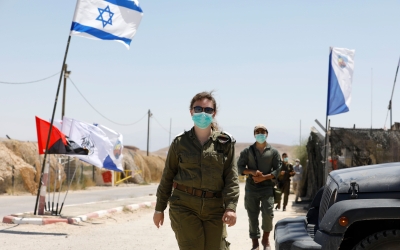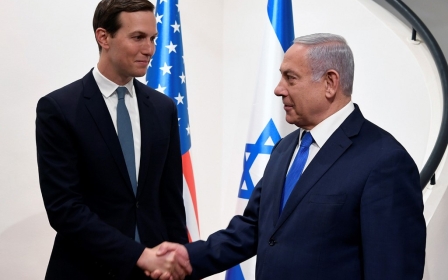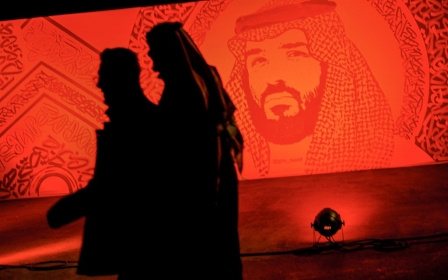UAE diplomat warns Israel against annexation in unprecedented op-ed

The UAE's ambassador to the United States has said that Israel is "an opportunity, not an enemy" and that its planned annexation of the occupied West Bank could upend normalisation efforts with Arab states.
Writing in the Yedioth Ahronoth newspaper, Yousef al-Otaiba, one of the Gulf state's top diplomats, outlined the costs of annexation versus the benefits of warmer ties with Arab states.
Otaiba was, along with the ambassadors of Oman and Bahrain, present at US President Donald Trump's announcement of his Middle East peace plan in January at the White House. Senior US officials and Israeli Prime Minister Benjamin Netanyahu were also in attendance.
Otaiba’s op-ed was published in Hebrew on the front page of Yediot Ahronoth, in what is the first-ever column written by an Emirati official in an Israeli newspaper. The diplomat also recorded a video message, and had his column tweeted out in Hebrew by Hend al-Otaiba, the UAE's director of strategic communications at the foreign ministry in Abu Dhabi.
New MEE newsletter: Jerusalem Dispatch
Sign up to get the latest insights and analysis on Israel-Palestine, alongside Turkey Unpacked and other MEE newsletters
Otaiba wrote that “annexation will harden Arab views on Israel, just as the UAE initiatives have opened up an opportunity for a cultural exchange and a broader understanding of Israel".
"The UAE has encouraged Israelis to think about the positive side of more open and normal relations. And we have done a similar thing with the citizens of the Emirates and with Arabs in general.”
Otaiba said that the annexation of the Dead Sea and the Jordan Valley, a strategic and rich Palestinian area, would defy Arab consensus and the Palestinian right of self-determination, “spark violence” and “awaken extremists,” and would affect ties with Jordan.
“It will primarily affect Jordan. The same Jordan whose stability, which is sometimes taken for granted, benefits the entire region and benefits Israel in particular,” Otaiba said.
Jordan shares a 335km border with Israel and the West Bank, and its security coordination is highly valued by Israel's military and intelligence.
Israel's planned annexation of the Jordan Valley: Why it matters
+ Show - HideThe annexation of the Jordan Valley could effectively kill whatever hopes remain for a two-state solution to the Israel-Palestine conflict as it would render completely impossible the establishment of a viable, contiguous Palestinian state.
In April, Prime Minister Benjamin Netanyahu reached an agreement with his rival Benny Gantz to form a unity government that seek to impose Israeli sovereignty over the Jordan Valley. Legislature could be discussed from 1 July.
The Jordan Valley accounts for around one-third of the occupied West Bank (almost 2,400 square kilometres), where 30 Israeli agricultural settlements house around 11,000 settlers.
Some 56,000 Palestinians also reside in the Jordan Valley, including in the city of Jericho, where their daily lives are deeply impacted by Israeli occupation policies.
The area is rich in minerals and agricultural soil and is a highly strategic area, as it lies along the Jordanian border.
Jordan, the Palestinian Authority in Ramallah, and senior officials in the European Union openly oppose the annexation plan, while the administration of US President Donald Trump has encouraged such moves.
The areas slated for annexation amount to around one-third of the West Bank and include a 97km stretch along the border with Jordan, including two crossings - the Sheikh Hussein Bridge and al-Karameh Bridge, also known as the Allenby crossing.
Otaiba said that his country had designated Lebanon's Hezbollah group as a “terrorist organisation", as well as denouncing Hamas and “Israeli provocations” in the Gaza Strip.
He said that both Israel and the UAE have the most “talented armies”, and have many common interests, including climate change, security, water, technology and advanced science.
“The UAE could be an open gateway that connects Israel to the region and the world,” Otaiba wrote.
On Tuesday, an official UAE plane landed in Israel's Tel Aviv airport delivering a shipment of medical aid to Palestinians in the occupied West Bank and the besieged Gaza Strip to help curb the spread of coronavirus.
It was the second Emirati plane to fly from Abu Dhabi to Israel in less than a month, a sign of strengthening diplomatic ties between the two countries.
The Palestinian Authority rejected the aid shipment sent in May, saying that aid must be sent in coordination with the Palestinian leadership and not with Israel.
Middle East Eye delivers independent and unrivalled coverage and analysis of the Middle East, North Africa and beyond. To learn more about republishing this content and the associated fees, please fill out this form. More about MEE can be found here.





